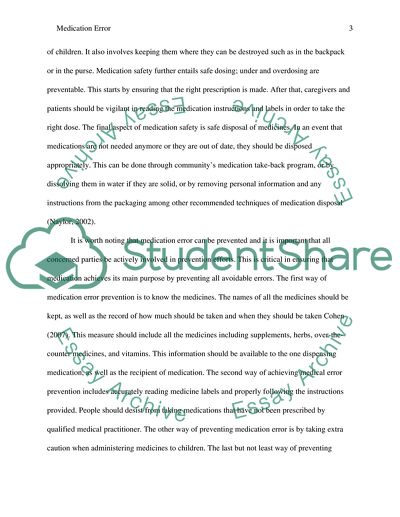MEDICATION ERROR Essay Example | Topics and Well Written Essays - 500 words. Retrieved from https://studentshare.org/nursing/1615580-medication-error
MEDICATION ERROR Essay Example | Topics and Well Written Essays - 500 Words. https://studentshare.org/nursing/1615580-medication-error.


